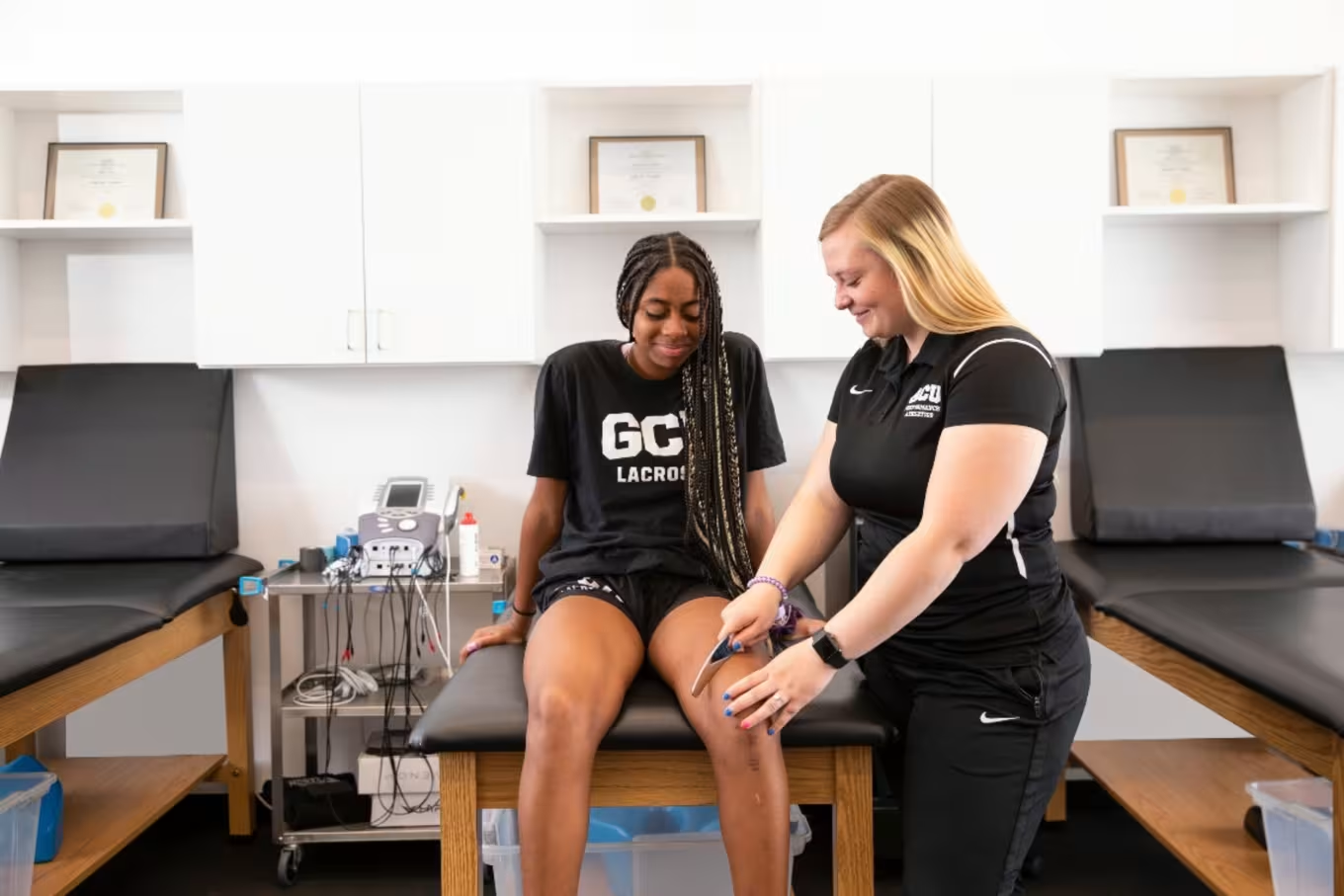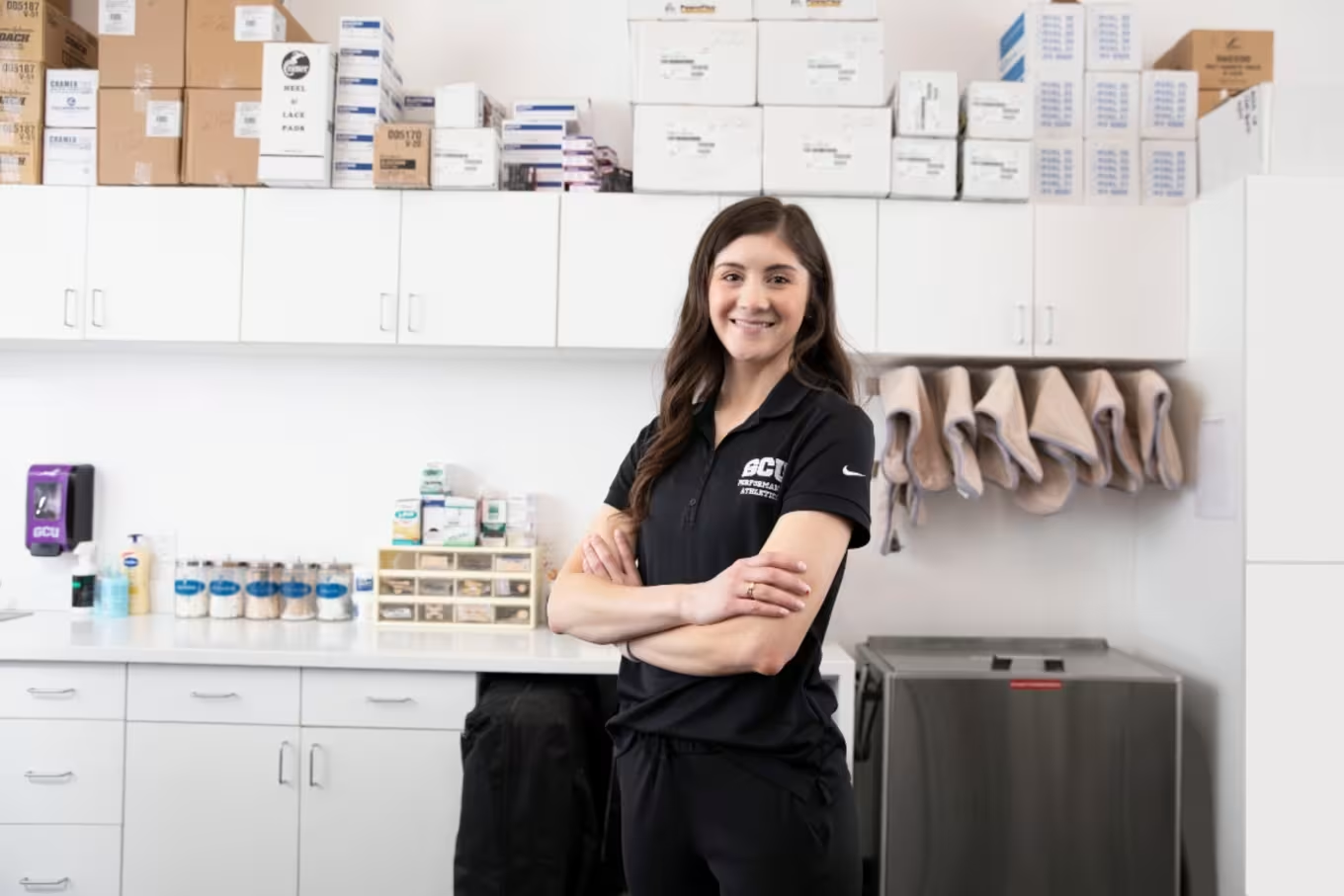Bachelor of Science (BS) - Athletic Training

Bachelor of Science (BS) - Athletic Training
journey today.

We're here to help.
The GCU College of Nursing and Health Care Professions designed this program to enable all athletic training degree graduates to be well-prepared in their future careers. Graduates from the BS in Athletic Training degree program at GCU may go on to become certified athletic trainers, sports coaches and more.
People in these roles work in a variety of settings, including:
High schools, colleges and universities
Professional sports
Clinics
Campus: $8,250 per semester [More Info]
Up to 90 credits, only 84 can be lower division
Credits: Fill out the Lopes Eval to find out what will transfer
Admission Requirements (Bachelor's)
OR 2.5+ Unweighted GPA and
The Bachelor of Science in Athletic Training is no longer accepting applications.

If you’d like to work with athletes in a training capacity, a degree in athletic training may be the right choice for you. Learn more about the Bachelor of Science in Athletic Training at Grand Canyon University and take the first step toward an athletic training career.
The Bachelor of Science (BS) in Athletic Training degree at Grand Canyon University (GCU) gives graduates hands-on experience at becoming athletic trainers. Students in this program participate in laboratory classes and clinical rotations at athletic and rehabilitation facilities. They combine theory and practice to go on to become well-rounded athletic trainers. In this athletic training program at GCU, students who successfully complete the coursework are prepared to take the Board of Certification (BOC) exam.

Students in the program study human anatomy and physiology, exercise prescription, prevention of injury and taping and bracing. Additionally, students learn how to formulate rehabilitation plans and conduct orthopedic evaluations. These domains ensure that athletic training degree graduates have mastered advanced scientific and healthcare concepts.
The coursework for the bachelor’s in athletic training degree program is focused on domains that emphasize:
Injury and Illness Prevention and Wellness Promotion
Examination, Assessment and Diagnosis
Immediate and Emergency Care
Therapeutic Intervention
Health Care Administration and Professional Responsibility